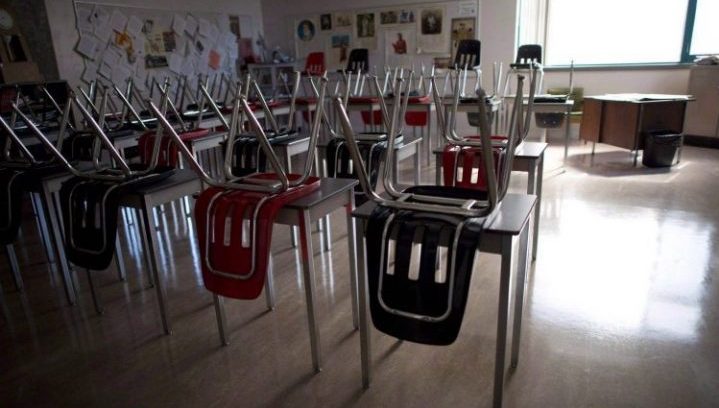Outside of Christmas, this time of year has to be one of the best for a student.

In the anthem “School’s Out,” Alice Cooper sings, “No more pencils and no more books.” Well, at least until September.
While everyone from students and teachers to support staff and administration are now on their summer vacations, those overseeing the education system will have their no. 2 pencils and graphing calculators in hand.
Are those even things anymore?
I’m kidding. Kind of.
The province’s Blue Ribbon Panel on Alberta’s Finances is hard at work with the expectation it will report back to the UCP government in the fall on whether we are getting the best “bang for our buck” on a number of fronts.
Education will be one of them.
It is that work that led to the government bringing forward Bill 9 to delay wage talks with unions.
Fiscally responsible mandate
- McLean accuses Calgary third-party advertiser of ‘whipping votes’ in favour of rezoning bylaw
- Canadian curler Chelsea Carey says don’t compare me to Jennifer Jones
- Firefighters battle blaze at vacant house in northwest Calgary
- 7 sent to hospital after carbon monoxide poisoning incident in northwest Calgary
It makes sense in the grand scheme of things. You can’t enter negotiations not knowing how much money you can or can’t afford to spend. It’s called fiscal responsibility and it also stays on message for the new government, which I would argue has come in “as advertised.”
I don’t think anyone has been surprised by the backlash Bill 9 has received from the unions and the opposition NDP.
Even if mandated renegotiation is part of the original contracts, that could be viewed as a trap set by the previous government.
One of the main talking points behind this backlash has been the idea that Bill 9 is simply a precursor to system-wide cuts. The UCP has come out against this, saying they will continue funding at current levels at a minimum and have gone so far as to say they will also fund growth, as well.
I think this is all code for something. The UCP is essentially saying, “We will give the boards the money. Then it is up to them if they want to cut teachers or not.”
It seems the boards and bureaucracy within each school division will have some homework to do. And if they don’t do it, could this open the door to the government doing a full-scale review, like what was supposed to happen with the Calgary Board of Education (but was quietly mothballed before the election)?
Now funding is one thing, but student achievement is another and that’s what will be on the line with all this political talk.
Back in my early days as a reporter at 770 CHQR — 2007-2008 — I covered both of the city’s public and Catholic school boards and have always had an interest in education, given it’s a multi-million dollar facet of our society that has an impact on every single person that calls our city home.
While it’s easy to say “We need to cut,” or “Wages need to be rolled back,” you should really look at the realities faced in classrooms right now.
Complicated classroom problem
Let’s start with classroom sizes and narrow it down to elementary school.
The optimal classroom is 17 students, yet many classrooms in Alberta are well above that — in some cases close to double.
For those pining for cuts, I ask a simple question: Are you okay with even less one-on-one time for students?
Complicating the matter even more is the idea of “inclusive education.”
Gone are the days where children with special needs are in a classroom all their own. And while some of them require special attention or aides, sometimes the funding doesn’t necessarily follow the student in that way.
Further complicating the matter is the unwritten rule around not failing or holding back kids.
So now you have children who haven’t grasped the fundamental concepts in grade one and two and are being ushered through subsequent grades, not knowing how to count to 100 or write proper sentences.
If you’re wondering what’s really wrong with grade nine math scores, I think this might be a clue!
No simple solutions
As you can probably tell, this isn’t a simple conversation to have and I haven’t even touched on half of the issues I’ve seen and heard about. I’m barely scratching the surface, to be honest.
We could talk about whether there’s too much largesse in the bureaucracy. We could talk about grade three provincial achievement tests. We could talk about how some teachers are overly-protected even when they don’t meet expectations. We could also talk about how some parents treat school like a glorified daycare where the idea of homework is met with the refrain, “We have better things to do.”
Don’t get me wrong: none of these issues will be fixed before the bells start to ring again in September.
With the change in government this spring, I hope it does open up a real, frank discussion about our education system. It’s not just funding. And it’s not just classroom sizes. And it’s not just accountability.
It’s all-encompassing and it’s all connected. And if that don’t suit you, that’s a drag.
Joe McFarland is host of “Calgary Today” on Global News Radio 770 Calgary.








Comments